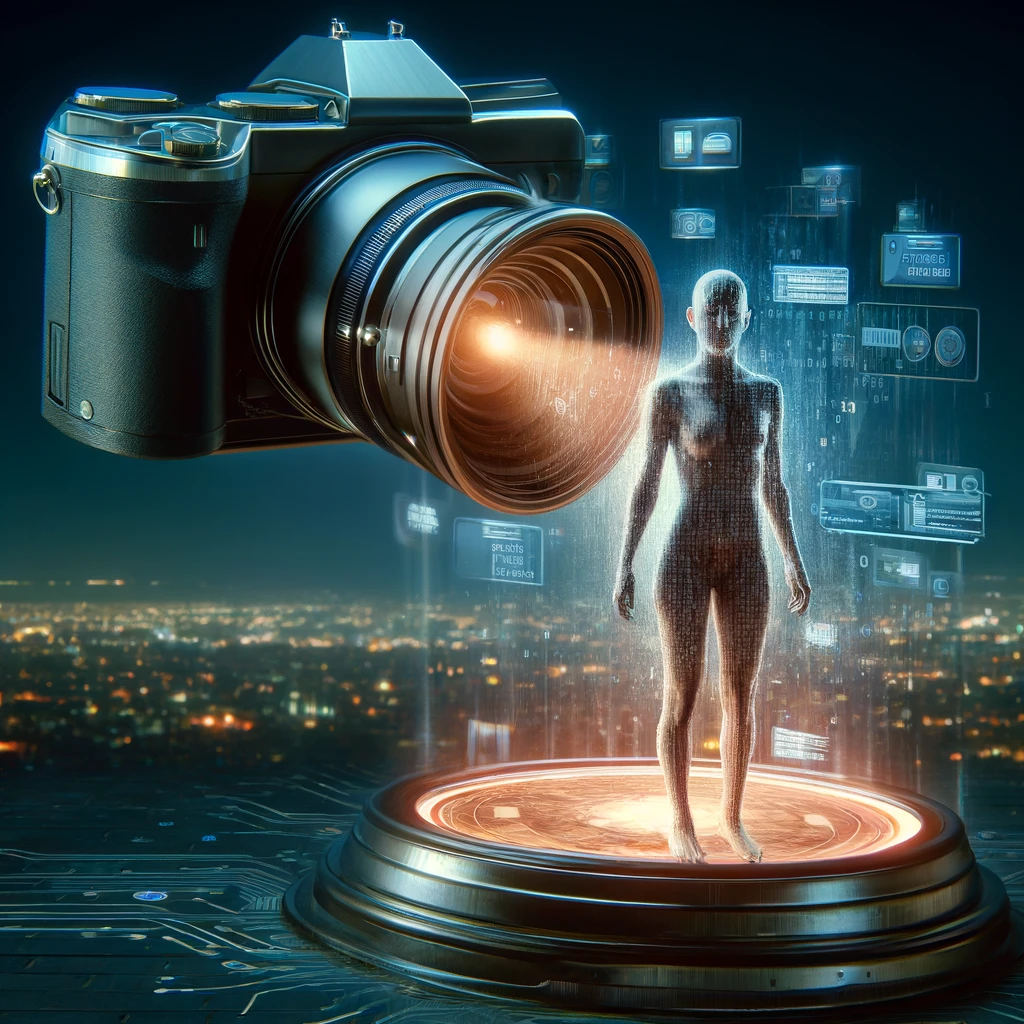Unveiling NUCA: A Dive into the Controversial AI that Strips Privacy

This conceptual illustration depicts the unsettling capabilities of AI cameras that can digitally strip away privacy.
- What is the NUCA camera and how does it use AI to invade privacy?
- What ethical concerns are raised by the ability of AI to create deepfake images?
- How might society respond to the challenges posed by AI technologies that compromise personal privacy?
The advent of artificial intelligence (AI) technologies has often walked a fine line between innovation and intrusion, a discourse brought sharply into focus by a new AI-driven camera known as NUCA. Developed by German artists Mathias Vef and Benedikt Groß, NUCA uses AI to digitally strip away clothing from images, producing deepfake photos that simulate nudity. This development not only raises eyebrows but also crucial questions about the boundaries of AI in our private lives.
The Emergence of NUCA
In an era where AI breakthroughs are frequent, NUCA represents a provocative exploration of AI’s potential misuse. As reported by Fox News, NUCA stands as a stark embodiment of privacy invasion, using sophisticated algorithms to create nude replicas of individuals without their consent. The artists behind NUCA have crafted this project with a dual intent: to showcase the technological feasibility of such an application and to ignite a critical conversation on privacy in the digital age.
How NUCA Works
NUCA operates by capturing a photo with a smartphone embedded within a custom-designed camera shell and then sending this image to the cloud where AI algorithms predict the subject’s appearance without clothing. These predictions are based on an analysis of physical attributes such as gender, age, and body shape. This process, which remarkably takes about 10 seconds, underscores a significant advancement in the capability of AI technologies to generate realistic deepfakes with minimal human input.
Artistic Motivation and Societal Impact
Vef and Groß’s intention is not to commercialize NUCA but to use it as an artistic tool to challenge public perceptions and legislative discussions about privacy and AI ethics. The forthcoming exhibition of NUCA in Berlin aims to provoke debate on whether current laws sufficiently protect individuals from such invasive technologies. This artistic project touches on a sensitive nerve: the balance between technological innovation and personal privacy.
The Broader Implications of AI-Driven Privacy Invasions
The capabilities demonstrated by NUCA sit at a troubling nexus of technology and privacy invasion. While the project itself is controlled within an artistic framework, it illustrates a powerful potential for misuse. Technologies similar to NUCA could be exploited for malicious purposes, such as blackmail or cyberbullying, highlighting a growing need to rethink privacy protections in the age of AI.
The rapid development of AI tools capable of creating realistic digital fabrications presents a double-edged sword. On one hand, these technologies can support creative endeavors and generate new forms of digital content. On the other, they pose significant risks, particularly when they enable the creation of content that infringes on individual privacy.
Reflecting on Past Controversies
This situation mirrors past controversies in the digital realm, such as the unsettling deepfake scenario involving Taylor Swift, which I explored in a previous blog post. The ability of deepfake technology to manipulate and fabricate media with such precision poses profound ethical dilemmas and underscores the pressing need for strict regulatory measures. You can explore more about this in “The Shadow Side of AI Art: Navigating the Ethical Minefield in the Wake of the X-Taylor Swift Scandal” available here.
Regulatory and Ethical Considerations
The development of NUCA prompts urgent discussions about the ethical implications of AI and the adequacy of existing digital privacy laws. It’s crucial for policymakers to consider these advancements and their potential impacts on society. As AI continues to evolve, so too should our strategies for safeguarding personal privacy against potential abuses.
The ethical deployment of AI is paramount, and developers must be proactive in implementing measures that prevent misuse while still advancing the field. As AI becomes more integrated into everyday life, establishing robust ethical guidelines and transparent practices will be key to maintaining public trust and ensuring AI enhances rather than undermines societal norms.
As we stand at the crossroads of technological innovation and ethical practice, projects like NUCA serve as a critical reminder of the power and dangers of AI. While AI continues to offer remarkable capabilities, it brings with it profound responsibilities. The dialogue sparked by NUCA is just the beginning of what must be an ongoing discussion about the future of privacy, ethics, and artificial intelligence.
To read more about the implications of AI and privacy, see the original article on Fox News: The AI camera stripping away privacy in the blink of an eye.




